The Return is a Foretold Event
Soviet Jews: Exodus Coming
A great deal of uncertainty surrounds the future of the Jews, in Russia and in the nation Israel. Recent developments in Soviet-American relations and the breakdown of détente have thrown into question when and even whether the emigration of Jews from Russia to Israel will be made possible on a large scale.
The Hebrew Scriptures show that Israel’s God is no stranger to suffering, whether it is seen in the broken-hearted lament of His prophet Jeremiah over fallen Jerusalem, or in the prophesied sufferings of the Messiah, “a man of sorrows, and acquainted with grief.” God is not indifferent to the suffering of men, especially that of His people Israel.
Soviet Jews: Exodus Coming
A great deal of uncertainty surrounds the future of the Jews, in Russia and in the nation Israel. Recent developments in Soviet-American relations and the breakdown of détente have thrown into question when and even whether the emigration of Jews from Russia to Israel will be made possible on a large scale. And if emigration becomes possible, what will await them on arrival in Israel?
What is the future of this nation, opposed on every side, so near to standing alone against those who desire her extinction? The uncertainty is pervasive: the fears and concerns cry out to be answered—“Is there yet hope for the Jews?”
For a time like this the prophets of the Jewish Scriptures pronounce a sure word concerning the future of Soviet Jewry.
In one sense the Russian agony is nothing new, for the history of the Jews is written in suffering. They have endured more persecution than any other people. The Hebrew Scriptures show that Israel’s God is no stranger to suffering, whether it is seen in the broken-hearted lament of His prophet Jeremiah over fallen Jerusalem, or in the prophesied sufferings of the Messiah, “a man of sorrows, and acquainted with grief.” God is not indifferent to the suffering of men, especially that of His people Israel.
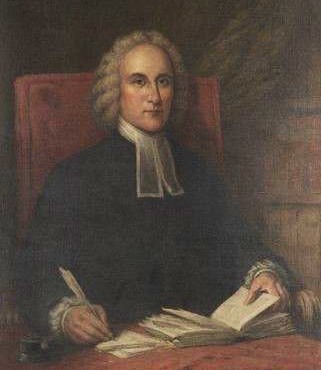
“Resolved, To live with all my might while I do live.”
After graduation, Edwards spent several years first as pastor of a small Presbyterian parish in New York City, then as a tutor at Yale where he was able to continue his studies in philosophy, the natural sciences (he wrote his paper on spiders then) and theology. Yet growing increasingly unsatisfied with purely academic endeavors, and desiring to occupy himself with concerns more directly touching the spiritual welfare of people, he sought God for a break into a new situation.
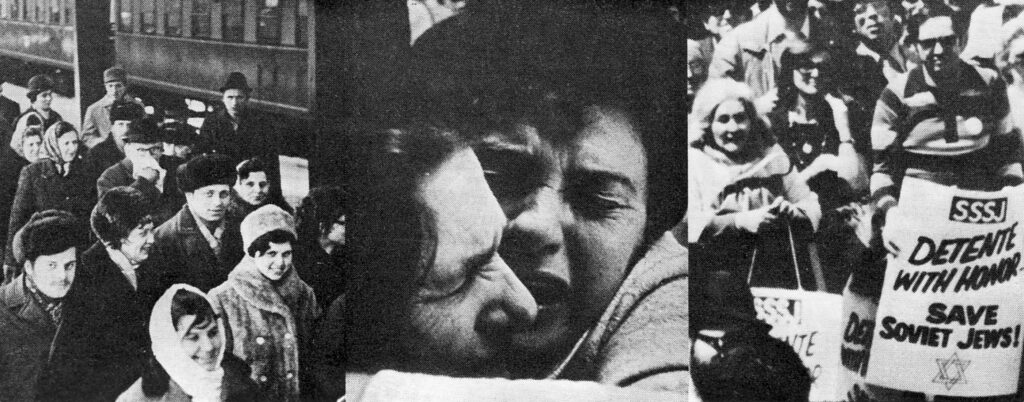
“He who keeps Israel shall neither slumber nor sleep”
The Psalmist David declares, “Behold, he who keeps Israel shall neither slumber nor sleep. The Lord is your keeper….” (Psalm 121:4,5) An example of this is found in the Exodus, when “the children of Israel sighed by reason of their bondage, and they cried, and their cry came up to God … and God heard their groaning, and God remembered His covenant with Abraham, with Isaac, and with Jacob. And God saw the children of Israel, and God took notice of them.” (Exodus 2:23-25)
The plight of the Jews, the people of His Covenant, did not escape God’s notice. At the burning bush He told Moses, “I have surely seen the affliction of my people that are in Egypt, and have heard their cry by reason of their taskmasters; for I know their sorrows: and I am come down to deliver them out of the hand of the Egyptians, and to bring them up out of that land unto a good land and a large, unto a land flowing with milk and honey….” (Exodus 3:7,8)
But … someone might say … that was fine for those people at that time, but what about now? How does it apply?
The Lord who was moved with compassion then hears the cry of Jews suffering today in Russia, and Scriptural prophecies given by God many centuries ago apply particularly to the present situation.
Today Soviet Jews suffer persecution as they have for generations—made scapegoats of economic troubles, the objects of ridicule and of attempts to destroy their identity as a people.
In the face of it all, the Soviet Jews remain. Many are denied exit visas to Israel. They are not permitted to maintain schools in which their language and culture may be preserved. The faith of their fathers has been declared “illegal”.
Men of conscience, Jews and Gentiles alike, are outraged at these injustices and demand that Russia release those who wish to go free, yet the final outcome seems uncertain. On this very point the Scriptures give assurance.
Isaiah prophesied, “Fear not: for I am with thee: I will bring thy seed from the east, and gather thee from the west; I will say to the north, Give up; and to the south, Keep not back: bring my sons from far, and my daughters from the ends of the earth.” (Isaiah 43:5,6)
Isaiah prophesied, “Fear not: for I am with thee: I will bring thy seed from the east, and gather thee from the west; I will say to the north, Give up; and to the south, Keep not back: bring my sons from far, and my daughters from the ends of the earth.” (Isaiah 43:5,6)
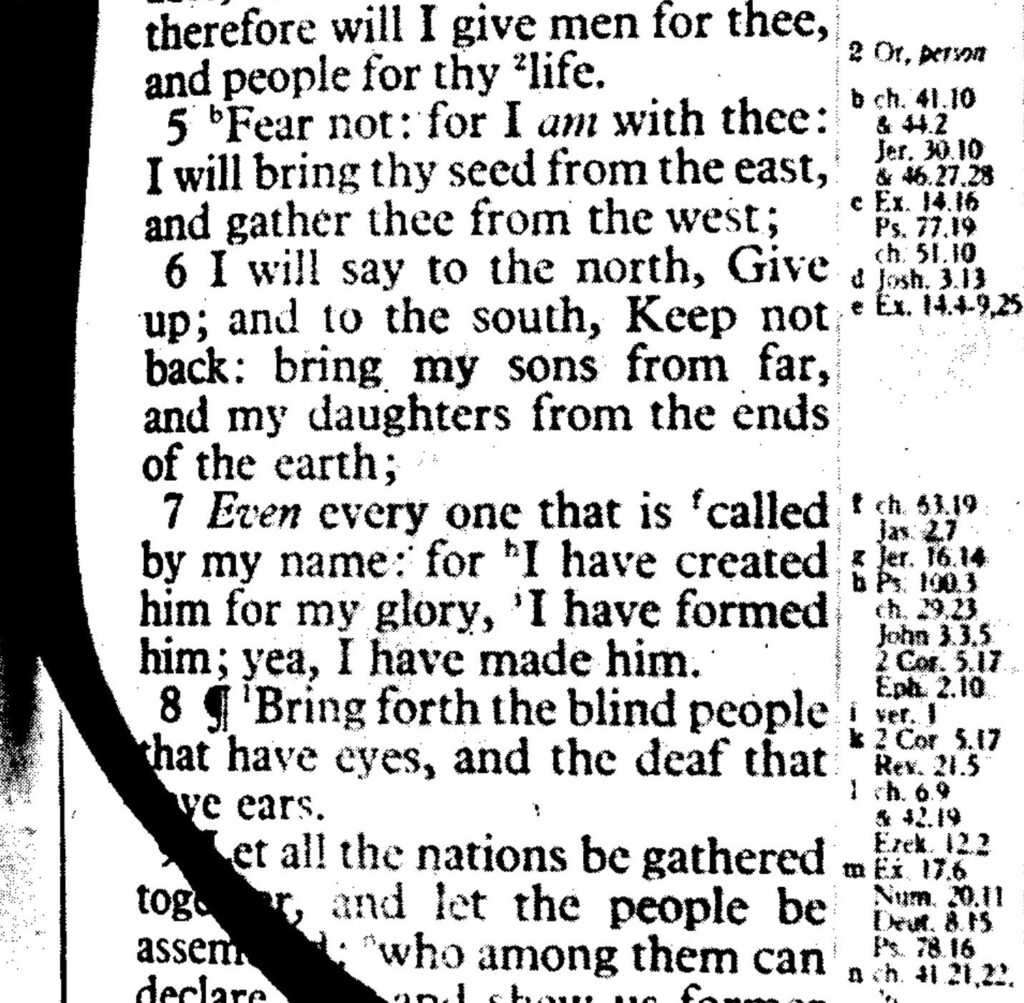
The return of the Jews to the homeland of Israel is a foretold event. It is specifically mentioned by several of the prophets as God’s design.
“…And it shall come to pass in that day, that the Lord shall set His hand again the second time to recover the remnant of His people, which shall be left … and He will set up an ensign for the nations and will assemble the banished ones of Israel, and gather together the dispersed of Judah from the four corners of the earth.” (Isaiah 11:11,12)
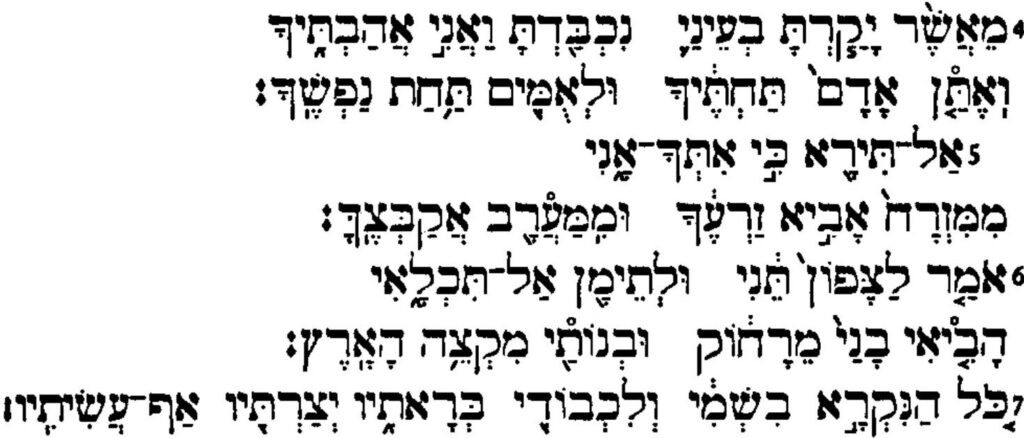
“Since thou wast precious in my sight, thou hast been honourable, and I have loved thee: therefore will I give men for thee, and people for thy life. Fear not: for I am with thee: I will bring thy seed from the east, and gather thee from the west; I will say to the north, Give up; and to the south, Keep not back: bring my sons from far, and my daughters from the ends of the earth; Even every one that is called by my name: for I have created him for my glory, I have formed him; yea, I have made him.” (Isaiah 43:4-7)
Jeremiah spoke concerning the first dispersion before it occurred. He prophesied that the Jews would be removed from their land and taken into captivity in Babylon for seventy years (see Jeremiah 25:11), and that the Lord would then regather His people into the land of Israel.
With the destruction of the Temple in Jerusalem in the year 70 the Jews were dispersed a second time. When the nation Israel was established many centuries later, in 1948, the second regathering of the Jews was already well under way.
Jeremiah understood the time of the Babylonian captivity by the Spirit of God. He also spoke of the second ingathering and in particular of God’s role in restoring the Jews from the north, the vast area that includes what we now call Russia:
“Therefore, behold, the days come, says the Lord, that they shall no more say, As the Lord lives that brought up the children of Israel out of the land of Egypt; but as the Lord lives that brought up and that led the seed of the house of Israel out of the north country, and from all countries whither I had driven them; and they shall dwell in their own land.” (Jeremiah 23:7,8)
Though Russia resists and hardens her heart against God, as did Pharaoh in his day, the word of the Lord will be fulfilled in every detail.
Recognition of these prophesied events is vital to the preservation and liberty of the Jewish people.
This cannot be seen as the entire picture. As any student of Jewish history knows, the story of the Exodus was not always a bright one. The crossing of the Red Sea did not signify the climax of God’s moving, but only the beginning. After that mighty beginning the men of Israel had to do their part to cooperate with God’s purpose. Often, they failed.
Such unbelief and complaining, such stubbornness and rebellion erupted among the men of Israel after the Exodus, that of all the 600,000 “men of war” who left Egypt, only Joshua and Caleb entered the Promised Land. No one else who was over twenty years old on leaving Egypt was permitted to enter. Much of the land promised to the twelve tribes was never actually possessed.
Similarly, for the Jews who exit from Russia and other lands to return to Israel, there is a long road to travel. The Scriptures warn that the future at this point will be contested. They tell of more suffering, and of a time of “Jacob’s trouble,” an extraordinary time:
“Alas! for that day is great, so that none is like it: it is even the time of Jacob’s trouble, but he shall be saved out of it.” (Jeremiah 30:7)
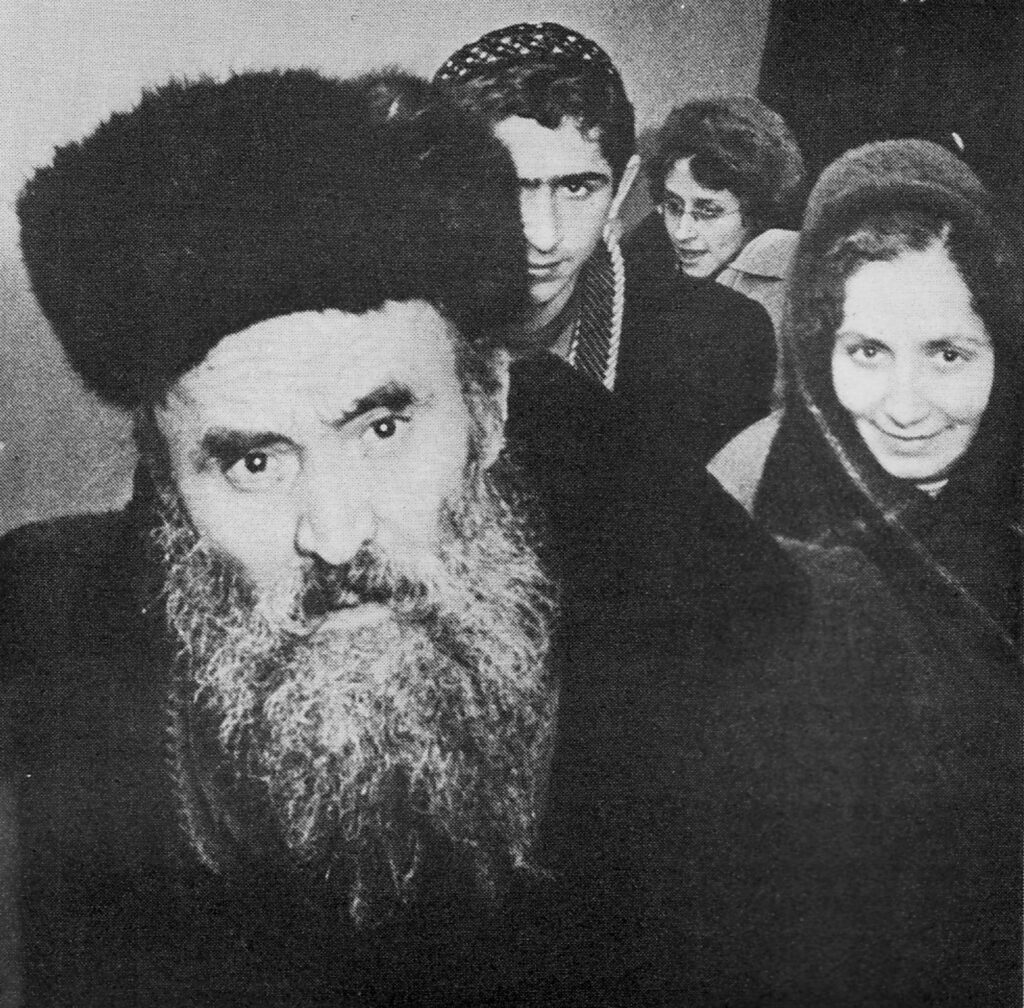
Daniel tells of a false messiah who will come and appear to be the answer to the world’s problems. He will promise and be able to negotiate a world peace, bringing the world’s economic woes under control and uniting all nations under his rule. He shall claim to be the promised Messiah, yet he “shall do according to his will; and he shall exalt himself above every god, and shall speak marvelous things against the God of gods, and shall prosper till the indignation be accomplished … neither shall he regard the God of his fathers.” (Daniel 11:36,37)
Daniel prophesied that this false messiah will arrange a covenant of peace with the Jews in Israel, a covenant of seven years. After three and one-half years, however, he will break the covenant and begin a terrible persecution of the Jews.
As in so many times before, a diabolically inspired man will attempt to destroy the people God has chosen for Himself. Yet he shall not succeed.
“And it shall come to pass, that in all the land, says the Lord, two parts therein shall be cut off and die, but the third shall be left therein. And I will bring the third part through the fire, and will refine them as silver is refined … they shall call on my name, and I will hear them: I will say, It is my people ….” (Zechariah 13:8,9)
“For out of Jerusalem shall go forth a remnant, and out of Mount Zion those who escape. The zeal of the Lord of hosts shall perform this.” (Isaiah 37:32)
At the height of this false messiah’s persecution of the Jews, the Lord Himself shall “go forth, and fight against those nations [which had gathered against Jerusalem to battle] as when He fought in the day of battle.” (See Zechariah 14:3)
These promises may seem too distant, too impossible to believe. Is it possible that God will again move supernaturally to deliver His people?
Just before the Exodus, God told Moses that if the people asked who had sent him, he should say, “I AM has sent me to you.” (Exodus 3:14) The God of Abraham was God before names existed, but He made a name for Himself in the earth by leading Israel out of Egypt as He had promised. He has also fulfilled many of the prophecies regarding the Messiah—only a limited number remain to be fulfilled.
The true Messiah is mentioned by many of the prophets. His description is given in many places so that the Jews and all nations will be able to recognize Him and not be deceived by false messiahs (of which there have been and will be plenty).
The prophets have described His birth through a virgin (Isaiah 7:14), His tribe, Judah (Genesis 49:10), His family and descent from the house of David (Isaiah 9:6,7), His birthplace in Bethlehem (Micah 5:2), His rejection by His people (Isaiah 53:1-3), His suffering and sin-atoning death (Isaiah 53:7-10), His death on the cross (Psalm 22:16-18) (Zechariah 12:10; 13:6), and His resurrection (Psalm 16:10). All of these prophecies along with scores of others have been fulfilled in the person of Jesus, whose name is actually the Hebrew Yeshua, and means salvation, deliverance, and victory.
Isaiah tells us that the problem is not that God fails to see His people, but that His people fail to see Him. “He is despised and rejected of men, a man of sorrows, and acquainted with grief; and we hid as it were our faces from him; he was despised, and we esteemed him not. But he was wounded for our transgressions, he was bruised for our iniquities … and with his stripes we are healed, (for) the Lord has laid on him the iniquity of us all.” (See Isaiah 53).
Some Messianic prophecies are unfulfilled to this day. Messiah has already borne in His own body the sin of His people, offering the sacrifice of His life for their salvation. But He has yet to come and establish His righteous, peaceful rule over the entire world from His capital, Jerusalem. That event will be the climax of a tumultuous and perilous crescendo of wars and persecutions associated with the rise of the false messiah depicted in the Book of Daniel.
No Jew or Gentile need remain ignorant of these critically important elements of history just around the corner.
Russian Jews, and all Jews, will find increasingly that recognition of these prophesied events is vital to the preservation and liberty of the Jewish people and the nation Israel. Willful ignorance of the understanding God offers in the Scriptures leaves open the door to deception . . . and disaster.
